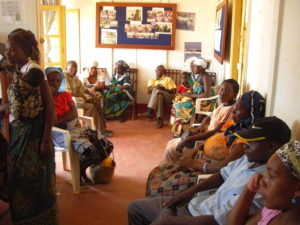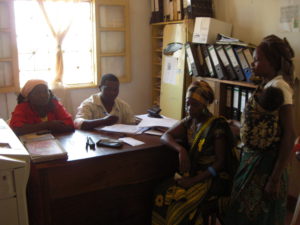This projects studies the relationship between the way in which justice providers articulate with each other in legally plural contexts and access to women’s rights within disputing processes.
Supervision: Prof. Dr. Eva Brems
Researcher: Dr. Giselle Corradi
Sponsored by BOF (2015-2018)
 Legal pluralism, i.e. the co-existence of more than one legal order in the same social field, raises a number of challenges and opportunities from the perspective of access to human rights within disputing processes. The existence of multiple options for dispute processing may increase people’s possibilities to make a human rights claim (whether or not formulated in a human rights discourse). However, not all available disputing forums may decide cases in line with international standards. In development contexts, legal pluralism is often official and results from the recognition or incorporation of customary legal orders into the post-colonial state. In these settings, legislation may stipulate how different legal orders should articulate with each other. But in practice, there tends to be a lack of capacity and/or legitimacy to implement these policies. This may result in jurisdictional confusion, impunity, lack of implementation of a forums’ decision and double jeopardy. In other words, legal pluralism may both enable and constrain access to human rights, not only due to the content of the different norms at play and the way in which different forums decide cases, but also as a result of its ‘structure’, i.e. the way in which multiple justice providers de facto articulate with each other.
Legal pluralism, i.e. the co-existence of more than one legal order in the same social field, raises a number of challenges and opportunities from the perspective of access to human rights within disputing processes. The existence of multiple options for dispute processing may increase people’s possibilities to make a human rights claim (whether or not formulated in a human rights discourse). However, not all available disputing forums may decide cases in line with international standards. In development contexts, legal pluralism is often official and results from the recognition or incorporation of customary legal orders into the post-colonial state. In these settings, legislation may stipulate how different legal orders should articulate with each other. But in practice, there tends to be a lack of capacity and/or legitimacy to implement these policies. This may result in jurisdictional confusion, impunity, lack of implementation of a forums’ decision and double jeopardy. In other words, legal pluralism may both enable and constrain access to human rights, not only due to the content of the different norms at play and the way in which different forums decide cases, but also as a result of its ‘structure’, i.e. the way in which multiple justice providers de facto articulate with each other.
This affects different groups of people in different ways, the gender of litigants being a critical element in determining her ability to navigate such legal plurality to her advantage.
Because they have less power, women are generally worse off: they have less financial resources and legal knowledge, while they are under pressure from patriarchal family and societal structures.
The go al of this research is twofold. Based on a case study in Mozambique, at the empirical level, it documents and analyses: the factors leading to different forms of articulation between disputing forums, the opportunities and barriers that arise as a result of these structures in terms of access to women’s rights, and how different women cope with these realities. At the normative level, it assesses how these lived realities can inform policy, legislation and development initiatives in the field of legal pluralism and women’s rights.
al of this research is twofold. Based on a case study in Mozambique, at the empirical level, it documents and analyses: the factors leading to different forms of articulation between disputing forums, the opportunities and barriers that arise as a result of these structures in terms of access to women’s rights, and how different women cope with these realities. At the normative level, it assesses how these lived realities can inform policy, legislation and development initiatives in the field of legal pluralism and women’s rights.